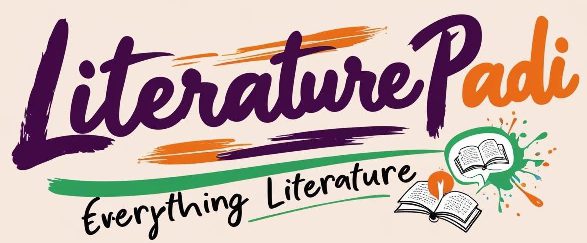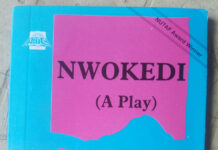📢 Follow our WhatsApp Channel for the latest literary updates!
Fences is one of the two play texts recommended under the Non-African Drama category for 2021-2025 Harmonised Literature-in-English SSCE syllabus. The other text in this category is John Osborne’s Look Back in Anger.
▪️ Fences is written by August Wilson.
▪️ The word “fences” symbolises a number of concepts and ideas in the text. It symbolises the demarcation between the white American and the black American. For Rose, it also symbolises the love and unity needed to keep her family safe from the outside world. For Troy, “fences” symbolises protection from Death, his worst tormentor. It is also a representation of the conflicting desires which bother on self determination, emancipation as well as struggle for survival and fulfilment. It is a protective barrier that keeps strangers out and families in. In the case of Troy, he continually maintains a barrier between himself and the people he loves the most.
▪️ The play is set in the 1950’s America revolving round the black family of Troy Maxson.
▪️ What are the themes in Fences? There are themes of racial discrimination, responsibility, deception, dream, mortality, betrayal, dissatisfaction, family, passion for dream, protection and death.
▪️ What relationship exists between Troy and Cory? There is a father and son relationship between Troy and Cory. Tory is Cory’s father and he is over-protective over his son’s choice of future career. He does not want his son to play football so he won’t fail like he did or become ruined on the pedestal of racial discrimination like he is. Cory is the issue from the affair between Troy Maxson and Alberta.
▪️ In the play, Gabriel (or Uncle Gab), the mad man, likes singing.
▪️ Fences addresses the prevalent issue of racial discrimination in Northern and Southern America in the fifties.
▪️ The characters in August Wilson’s Fences are Troy Maxson, Rose Maxson, Cory Maxson, Bonnie, Alberta, Raynell, Miss Pearl, Lynon Maxson, Jim Bono and Gabriel Maxson.
▪️ Troy Maxson is presumably the protagonist while the antagonist is Cory Maxson.
▪️ Raynel is Troy’s illegitimate child.
▪️ Bono is Troy’s best friend and they also work together.
▪️ Troy Maxson dies of heart attack.
▪️ Rose tells Troy and Cory to build a fence in a bid to protect her family and ensure the linkage of the broken unity.
▪️ Lyon is the eldest son of Troy Maxson. His ambition is to become a musician; music gives meaning to his life. He depends on his wife pay check to pay his father.
▪️ Alberta died having her baby.
▪️ Rose Maxson is Troy Maxson’s wife.
▪️ Précis:
Fences by August Wilson is about the reality of a black American family man in a racist American society in the fifties. Troy Maxson, a garbage collector and family man, is the patriarch of the Maxson’s family and of course the protagonist of the play. Not less a father who provides for his family and keeps it together, he finds himself building a barrier between himself and his loved ones. He continually struggles for justice and fairness in an American society that offers none to the black Americans. He is however at loggerheads with his son on what an ideal black American should be in a period that ushered in the likes of Martin Lurther King Jnr. and Rosa Parks who triggered the struggle for fair treatment of black Americans citizens.
Like typical modern characters and much more black Americans, Troy Maxson is frustrated, disillusioned, rebellious and tormented. He calls for the improvement of black Americans; this of course he demonstrates when he questioned why black men were assigned the work of garbage collectors and not anything better, say driver for example.
▪️ Fences, like typical black American literature, is rich in Ebonics or African American Vernacular English (AAVE). This diction conforms to educational and social background of the Maxsons’ position in the social hierarchy as the lowest rung on the socio-politico-economic ladder of an America deeply immersed in racial segregation.
Join Our Social Media Channels:
- WhatsApp: Literature PADI
- Telegram: Literature PADI
- YouTube: @literaturepadi
- Facebook: Literature PADI











